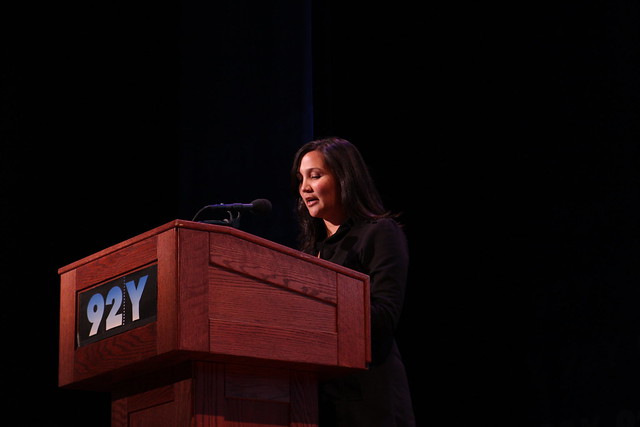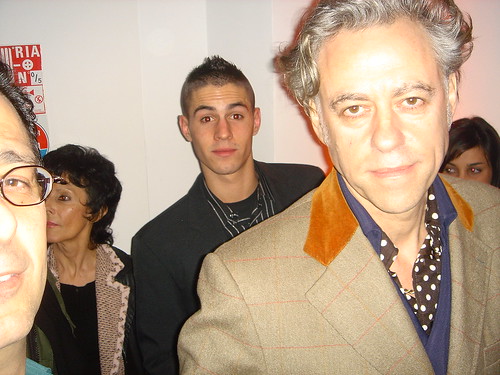
I’ll be doing one of these entries each day, with a few notes on the most interesting things I attended and any thoughts I had to share. I’ll have some more reflective and detailed posts coming, but I wanted to share the basics of this experience as fast as possible.
So, Tuesday.
In the morning, I went to the Clinton Global Initiative. It’s intensely controlled – tons of security, including secret service. Bloggers and regular media are combined in a subterranean press room which is packed full. I saw a nasty squabble break out over front row seats in the press room. There is an interesting contrast between part-time analytic bloggers like me and the full timers who do this for a living. If you want to attend any sessions at CGI, you have to be escorted by event staff. I spent my time watching the live feeds in the press room since I hadn’t had the chance to register to attend anything. On Wednesday, I’ve got some registrations.
The most interesting things I saw were Hilary Clinton’s speech launching the Global Clean Cookstove Alliance and a panel with Ellen Sirleaf Johnson, Queen Rania of Jordan, and Muhtar Kent of Coca-Cola talking about empowering women and girls.
Initial thoughts on Hilary Clinton: We’ve been trying to get people to use better cookstoves for 50 years. Why would it work now? But impressive framing of cookstoves as a global health issue. It needs a context if anyone is going to care, and global health is the sexy issue right now. I’ll have a post on cookstoves at Aid Watch soon.
Initial thoughts about the Women and Girls Panel: Muhtar Kent from Coca-Cola was up there like he belonged. He had serious ideas and plans about empowering women and girls, including an announcement that he is challenging Coca-Cola to empower 5 million more women by 2020. What does it mean that corporations are engaging in global health like this? How is it going to change the landscape? I should be writing on that for UN Dispatch.
In the afternoon, I was at the Mashable Digital Media Lounge. My favorite event was the panel on malaria. It focused mainly on Nothing but Nets, and included Mikkel Vestergaard Frandsen CEO of Vestergaard Frandsen group, Bishop Thomas Bickerton of the United Methodist Church, and Elizabeth Gore, Executive Director of Global Partnerships for the UN Foundation.
They made a persuasive case for the important of continuing the fight against malaria, arguing that we’re making real progress and we just need to stick with it. That ties to my own mantra of keeping on with what we already know how to do, so it’s not surprising I liked it.
They also discussed the importance of good storytelling and of small donations, which I liked less. While it’s true that ten dollar bills have been the lifeblood of Nothing But Nets, keeping up the stream of stories and pictures to motivate those small donations is misery for the field team who are actually attempting to run a project. A nice government or foundation grant that just asks for a report every month and some proof that you’re hitting your goals is far, far easier. Otherwise you spend valuable program time generating the stories that trigger small donations, and it takes away from the work you’re really trying to do. That is an eternal dilemma of this work, but the enthusiasm of this high level panel really brought it home to me.
Finally, in response to the one guy who was convinced that DDT is the magic bullet against malaria and environmentalists have been depriving us of it. NO NO NO NO NO. While DDT is environmentally vicious, that’s not why we stopped using it in the developing world. We stopped using it because mosquitoes get resistant to it really fast and it was losing effectiveness and making the mosquitoes stronger.
Disclosure: I attended UN Week as an Oxfam VOICE, which funded my trip as part of an effort to increase awareness of the MDGs.
__________________
Photo credit: Mashable
I wasn’t actually there for this, but it’s from the Digital Media Lounge, so bear with me.




